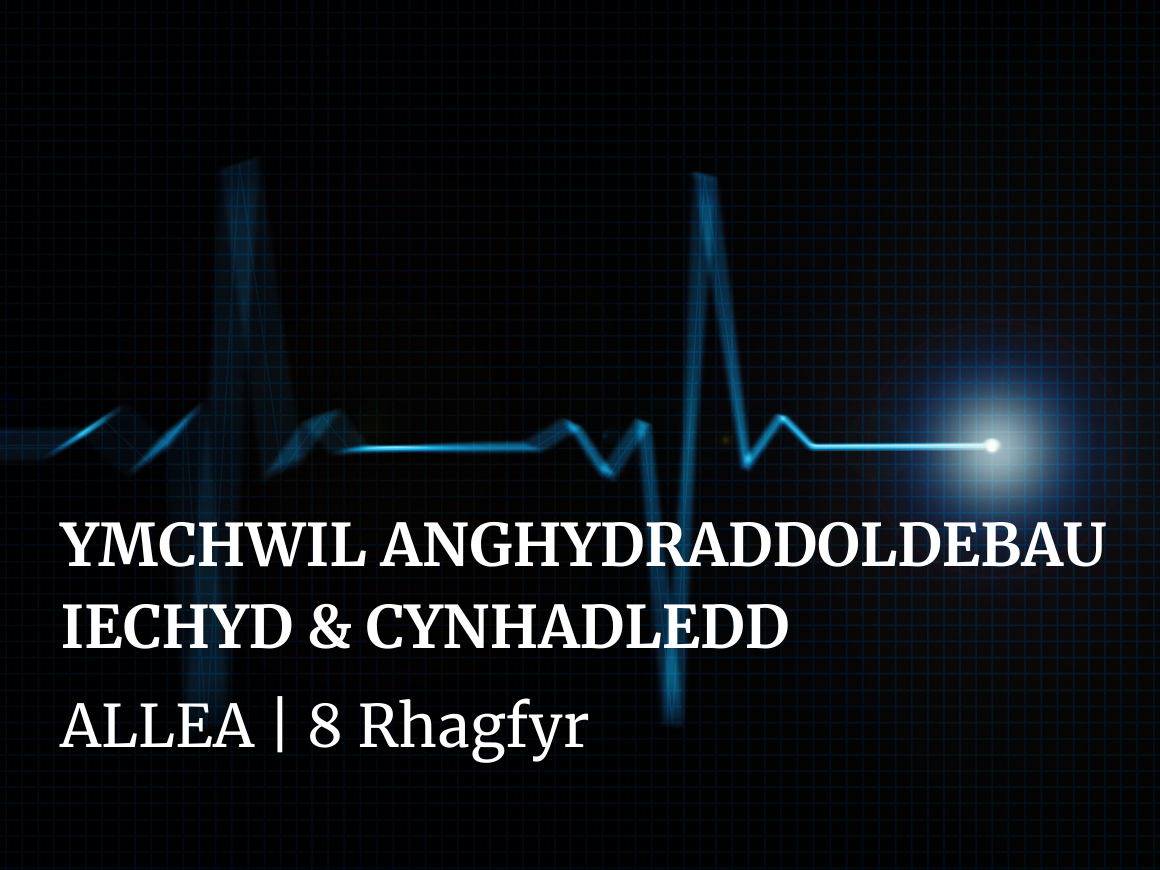Ymchwil Anghydraddoldebau Iechyd

Mae cenhedlaeth newydd o ddulliau gwyddonol yn gwella ein dealltwriaeth o anghydraddoldebau iechyd yn Ewrop, ond mae angen buddsoddiad mewn isadeiledd data er mwyn gwneud defnydd o’i botensial ar gyfer bwydo’r gwaith o greu polisi, yn ôl adroddiad newydd.
Cyhoeddwyd yr adroddiad, Health Inequalities Research: New methods, better insights? gan y Ffederasiwn Academïau Ewropeaidd y Gwyddorau a’r Dyniaethau (ALLEA) a’r Ffederasiwn Academïau Meddygaeth Ewropeaidd (FEAM). Mae’n gwerthuso’r dulliau gwyddonol a ddefnyddiwyd i astudio anghydraddoldebau iechyd, gyda’r nod o helpu i leihau’r bwlch iechyd ar draws Ewrop.
People who are worse off in socio-economic terms on average die younger, and within their shorter lives often have more health problems. These “health inequalities” are a persistent challenge for public policy in all European countries and have been studied extensively by researchers from various disciplines…
…
Recently, new quantitive research methods have been developed, such as “counterfactual” approaches to causal inference, applications of genetics, advanced methods of mediation and moderation analysis, and “quasi-experimental” methods to study “natural experiments” with interventions and policies. These methods promise to shed new light on these questions, and this report reviews their strengths and limitations as well as the first substantive results that studies applying these methods have produced.
Health_Inequalities: New methods, Better insights?
Cynhadledd: Health inequalities: new methods, better insights?
Dyddiad: 8th Rhagfyr
Lleoliad: Amsterdam | Online
Cofrestrwch: Final conference ‘Health inequalities: new methods, better insights?’ – ALLEA
Darllen Mwy:
Chair: Johannes Siegrist (Heinrich Heine University Düsseldorf and committee member)
13:30 Opening on behalf of the KNAW (Sjaak Neefjes, Leiden University Medical Center and KNAW board member)
13:45 Understanding health inequalities: the usefulness of an expanded toolbox (Johan Mackenbach, Erasmus MC and chair of the committee)
14:15 Known unknowns in the field of health inequalities: priorities for research (Ana Diez Roux, Drexel University)
14:35 Solutions for health inequalities: reflections on the interface between science and policy (Margaret Whitehead, University of Liverpool, committee member)
14:55 Discussion
15:15 Tea break
15:30 COVID-19: an unequal pandemic (Clare Bambra, Newcastle University, committee member)
15:50 COVID-19 policies and health inequalities (Thierry Lang, University of Toulouse)
16:10 Causal thinking in a pandemic: tools to understand COVID-19 inequalities and policy responses (Maria Glymour, University of California San Francisco)
16:30 Panel discussion
17:15 Closing remarks by ALLEA and FEAM
Final conference ‘Health inequalities: new methods, better insights?’ – ALLEA